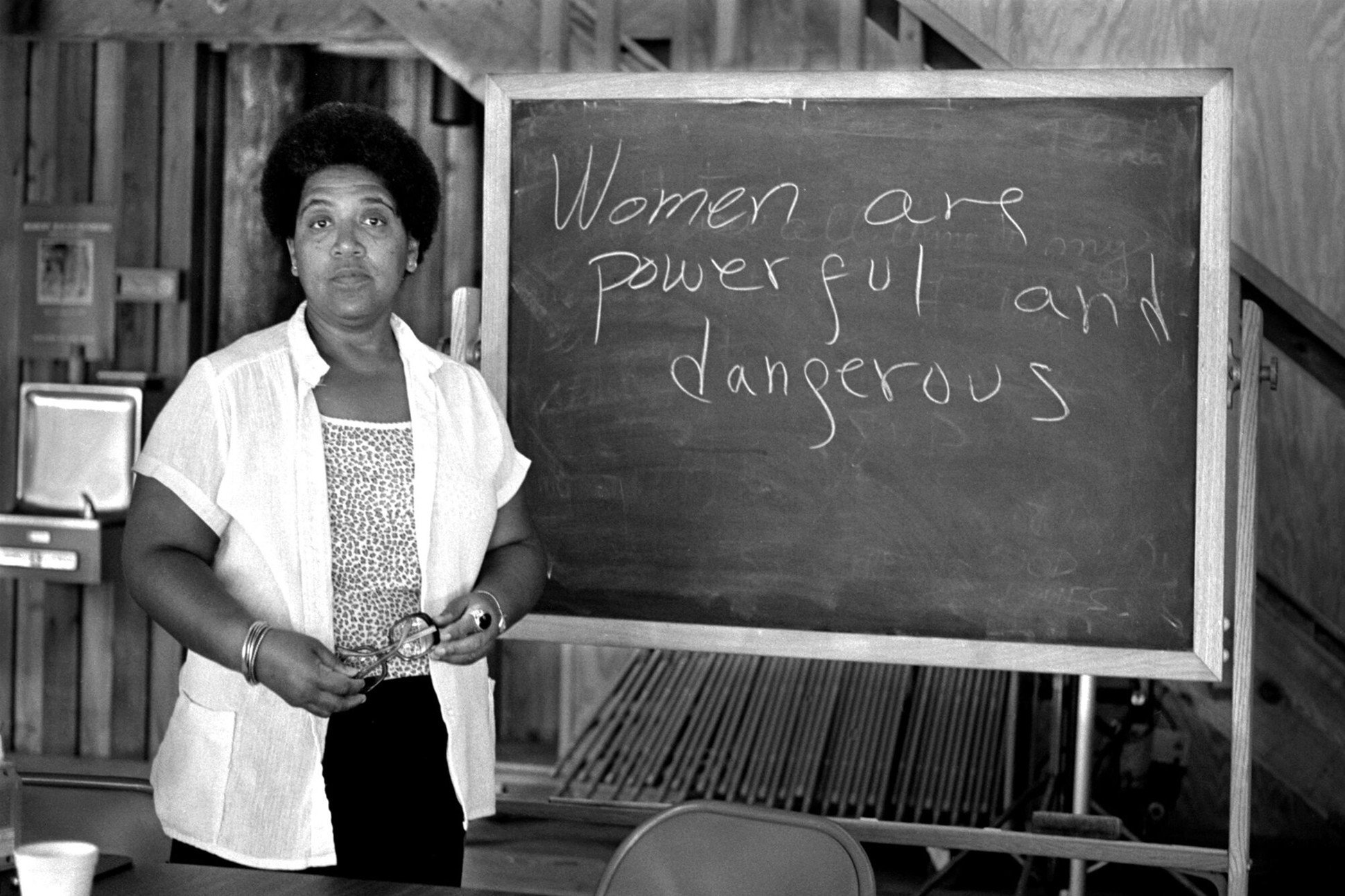
Check out my reading list.
#RJ Wrapped
The Reproductive Justice movement has faced a lot of challenges this year, but has also witnessed several wins. Here’s what our #ReproductiveJusticeWrapped “sounds” like in 2023:
Reproductive Justice in the Music Industry Has a Long Way 2 Go
There is so much misogynoir─originally defined by Moya Bailey “as the ways anti-Black and misogynistic representation shape broader ideas about Black women, particularly in visual culture and digital spaces”─in media industries that goes unchecked until legality is involved.
Practicing Radical Community Care
Radical self-care, an equally important practice, is defined by activist Angela Davis as the ability “to bring our entire selves into the movement. It means that we incorporate into our work as activists ways of acknowledging and hopefully also moving beyond trauma. It means a holistic approach [to care].”
Why Decolonization is Necessary for Reproductive Justice
Decolonization as a goal of reproductive justice first requires the decolonization of knowledge and research. Every individual deserves to be able to openly discuss and learn about reproductive justice issues─such as maternal health, sex education, menstrual health information, and more─without persecution. Additionally, research in efforts to implement health interventions should always prioritize the voices of the most affected.
What You Should Know About The Forced or Involuntary Sterilization Compensation Program (FISCP)
FISCP, orchestrated by the California Victim Compensation Board (CalVCB), was announced at the end of 2021 and implemented January 1, 2022. The program promises to divide $4.5 million (roughly $25,000 per victim) among those who were wrongfully sterilized under the state’s care. CalVCB states on their website that monetary compensation may be granted in two payments, the second payment only to be sent if there are remaining funds in the budget by March 31, 2024.
“On My Mama”
“On My Mama” is a song that exudes confidence, swag, and self-affirmation. Even so, it’s important to remember that the song was written at a critical time for Monét. Adjusting to motherhood ─ be it through preparation, the experience of childbirth, or post-partum life ─ is a sensitive time for everyone, but especially for Black women. We must encourage our community to take the time they need and deserve to regain their health, and to remember that, in the words of Audre Lorde, “rest is our birthright.”
To Be Young, Houseless, & Pregnant
Marginalized communities―people of color, members of the LGBTQ+ community and individuals living in low-income communities―are most likely to experience houselessness in the United States. For folks experiencing houselessness it is also difficult to afford or even access health care services and medications. That being said, two generations are at risk when someone is houseless and pregnant.
Racialized Access to Reproductive Health Care
For most people of color in the United States racialization persists in aspects of their everyday lives. Racialization, defined by Douglas Massey as “a social process by which meanings and attributions are attached to inherited characteristics, typically for purposes of exploitation and exclusion,” in combination with gendered oppression have distinct consequences for women of color. To add another layer to their oppression, female immigrants of color─Black and non-Black Latine women to be specific in this context─face several disparities due to their intersectional identities.
A Proposal for Black Reproductive Health
I posit there is a connection to be made between Black women’s history of exploitation and disparities in reproductive health care, such as that found in the sexual transmission of infections. This is not to say that the normalization of the objectification and hypersexualization of the Black female body directly causes the increased likelihood of obtaining an STI/STD. Essentially, Black women have not been encouraged in the United States’ history to take control of their sexual and reproductive health, as that right has often been stripped from them before they are able to. Black women have been socialized to believe they lack power in sexual relationships, and I hypothesize that this socialization has lead their being less likely to negotiate contraceptive use and seek adequate reproductive health care.
El Sangre Negro.
“And my wish for the child is to feel the blood of her people flowing through her veins and remember that where she comes from is sacred, and that she is sacred, because her bones are white, but her blood is Black.”
The Forced Sterilizations of Black, Indigenous, & Women of Color in the United States.
Reproductive violence is one of the most prominent types of violence against women of color around the world, as it appears in the forms of Black maternal mortality, sexual abuse and coercion, contraceptive sabotage, and nonconsensual procedures such as hysterectomies and tubal ligations. This 21-page paper focuses on the historical and contemporary research that exists with regard to the forced sterilizations of Black, Indigenous, and women of color (BIWOC).
Blackness in the Spanish-Speaking/Latin Caribbean.
This sociological literature review addresses research that exists regarding Blackness in the Spanish-speaking/Latin Caribbean. The research brings awareness to how Afro-Latinx communities are affected by “race,” particularly concerning the larger Latinx ethnic group. Moreover, this work illustrates the marginalization of Afro-Latinx communities both historically and presently, as well as how racism is ingrained in Latinx culture. Thus, this research concludes that historical and present occurrences of anti-Blackness pervade the culture of the Spanish-speaking/Latin Caribbean (including Haiti), isolating Afro-descendants in these countries from the rest of their populations.
Black American Women and Mental Health.
Sex, psychics and mental health―all considerably taboo topics in American society, and especially in minority communities. Yet the negative stigma attached to mental health among Black women has particularly challenging consequences that I have witnessed firsthand within my own communities. There is a general lack of understanding regarding mental health, and when combined with negative historical and current portrayals of Black women in media, along with the struggles of being a Black person in America, the acknowledgement and treatment of mental health disorders becomes either inadequate or nonexistent for Black American women.